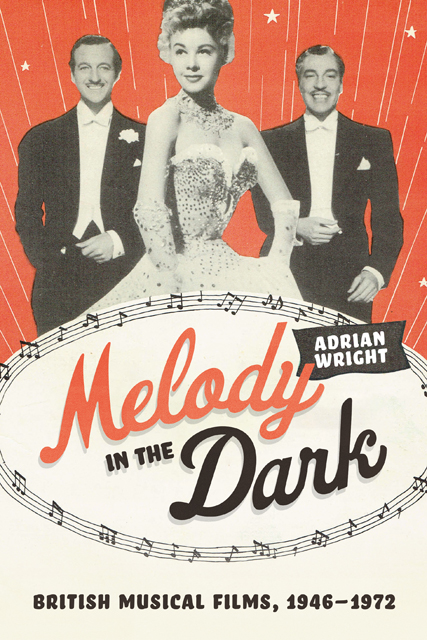Book contents
- Frontmatter
- Dedication
- Contents
- List of Illustrations
- Preface and Acknowledgements
- 1945 (from May 1945)
- 1946
- 1947
- 1948
- 1949
- 1950
- 1951
- 1952
- 1953
- 1954
- 1955
- 1956
- 1957
- 1958
- 1959
- 1960
- 1961
- 1962
- 1963
- 1964
- 1965
- 1966
- 1967
- 1968
- 1969
- 1970
- 1972
- Notes to the Text
- Select Bibliography
- Index of Film Titles
- General Index
Preface and Acknowledgements
Published online by Cambridge University Press: 08 June 2023
- Frontmatter
- Dedication
- Contents
- List of Illustrations
- Preface and Acknowledgements
- 1945 (from May 1945)
- 1946
- 1947
- 1948
- 1949
- 1950
- 1951
- 1952
- 1953
- 1954
- 1955
- 1956
- 1957
- 1958
- 1959
- 1960
- 1961
- 1962
- 1963
- 1964
- 1965
- 1966
- 1967
- 1968
- 1969
- 1970
- 1972
- Notes to the Text
- Select Bibliography
- Index of Film Titles
- General Index
Summary
The fortunes of the British film industry after the end of World War II were of very little significance compared with the toll that conflict had inflicted on the nation’s people.
Both the coming of war and its ending were turning points for the careers of the handful of performers that we might describe as British musical film stars. Following her last major feature Sailing Along in 1938, Jessie Matthews made her singing and dancing farewell in the depressing circumstance of the 1944 Candles at Nine, reappearing only in the aptly titled short Life Is Nothing Without Music (1947) and, dubbed but at least in colour, in a minor role for tom thumb (1958). Similarly, after dominating domestic screens throughout the 1930s, Gracie Fields bid her adieu to British studios with the 1939 Shipyard Sally. Another casualty was diminutive Bobby Howes, ending his long run in delightfully inconsequential musical comedies of the decade with Yes, Madam? in 1939.
The constantly chirpy Stanley Lupino had worked consistently to cheer up British cinemagoers from the beginning of the 1930s, running out of steam in 1939 with Lucky to Me. The most successful husband and wife performers in British films, Jack Hulbert and Cicely Courtneidge, working separately or together, had enjoyed success since the very beginning of British musical films in 1930 with the revue extravaganza Elstree Calling, but faded to black with the 1940 Under Your Hat, Hulbert returning much diminished a decade later with Into the Blue, and Courtneidge waiting fifteen years before playing the title role in a cheap comedy-thriller, Miss Tulip Stays the Night, which involved the further indignity of her being billed below the current pneumatically splendid starlet Diana Dors. Although not in the major division, siren Frances Day was some sort of personification of British 1930s glamour until The Girl in the Taxi (1937), but she was largely unseen during the war years except for the 1944 Fiddlers Three, re-emerging eight years later in Tread Softly, a film that only reinforced the opinion that she had belonged to the earlier decade.
The war had been kinder to others, whose style and material may be said to have suited the country’s need.
- Type
- Chapter
- Information
- Melody in the DarkBritish Musical Films, 1946-1972, pp. xiii - xviiiPublisher: Boydell & BrewerPrint publication year: 2023



